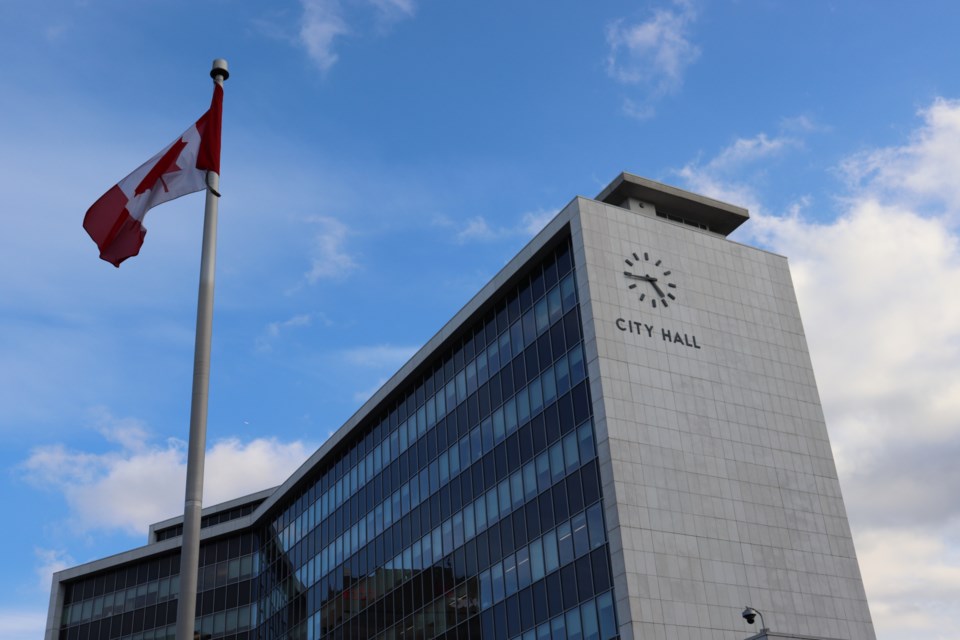The City of Hamilton’s four-month long budget process has begun, with a preliminary look this week at the 2025 Tax Supported Budget.
At the Nov. 6 General Issues Committee (GIC), general manager of finance for the City of Hamilton, Mike Zegarac presented a staff report of the budget that outlines an estimated 6.9 per cent hike in residential property taxes and a 9.95 per cent combined increase for water and wastewater fees.
Zegarac pointed to common trends in the coming city budget. Housing and homelessness will remain a key council priority for Hamilton.
“Approximately 1.9 per cent of the forecast 6.9 per cent of residential tax increase in part is tied to additional investments in housing and homelessness,” he said.
Meanwhile, with another rise in property taxes on the horizon for the 2025 budget year, some residents in Waterdown have started an online petition to leave the city entirely.
The creator of the petition, who goes by Gurpreet S., wrote in the description of the petition that they are tired of high taxes and a low level of municipal services, like police and transit.
The staff presentation on the 2025 city budget mentions a $2.2-million allotment for a 911 call centre at the Waterdown police and fire station, which is estimated to be operating by 2026.
"The year-on-year property tax hike in Hamilton is rapid and unsustainable for many Waterdown residents," Gurpreet S. wrote.
The petition, aimed at Ontario Premier Doug Ford, has been signed by about 560 people and asks the province to put the village of Waterdown in Halton, instead of Hamilton.
"This is not just a change for better services and lower taxes, but a change for the recognition and respect our community deserves," the petition says.
Current numbers just an outlook
Zegarac said the numbers presented Wednesday are a forecast, not a final amount.
“The city has embarked on a multi-year budget,” he told the committee.
The numbers presented to the committee are based on that multi-year budgeting process and its estimates for 2025. The budget process for next year is still in its early stages, with the first of two delegation sessions planned for Nov. 18. The second session is on Jan. 20
Another major theme Zegarac mentioned is a focus on infrastructure in the city.
“You will see that over 50 per cent of the residential tax increase forecast for ‘25 is infrastructure-related on the tax side. On the rate side, it’s almost 100 per cent. Almost the entirety of the water and wastewater and storm rate increase is to support infrastructure.”
On Wednesday, Mayor Andrea Horwath announced Metrolinx, the company behind the long-awaited $3.4-billion Hamilton Light Rail Transit system, will provide provincial assistance in some of the water and wastewater infrastructure changes that will be required along the line. The announcement came after the GIC budget discussion, so any impact that has on the budget is yet to be seen.
The city’s 2025 budget will also invest in cybersecurity, following the months-long outage of several essential city services, like the library, bus schedule and city service desks, after a cybersecurity attack last February.
Impacts of developer fees, federal funding still unknown
The final budget will also be impacted by provincial changes to development charges. The city attributed an almost 2.6 per cent property tax increase in the 2024 budget to Bill 23, which let developers off the hook for development charges.
The 2.6 per cent added to property tax bills in Hamilton covered the anticipated loss resulting from the development charge phase-in period. Municipalities rely on developer fees for city infrastructure projects, but the fees drive up the cost of building homes.
The phase-in period was removed from Bill 23 – also known as the More Homes Built Faster Act – in April, two months after the city’s budget was formalized.
In September, Flamborough-Glanbrook MPP Donna Skelly criticized the city for not rebating that 2.6 per cent that residents found on their property tax bills, as the province did not go through with ending development fees.
Around the same time, the province walked back the phase-in period, the federal government announced the Canada Housing Infrastructure Fund, which could make up to $1.5-billion in funding available to the province of Ontario to support municipal building—if the province meets the terms of the funding.
One of those conditions involves freezing development charge rates at April 2, 2024 in municipalities with populations over 300,000 and allowing municipalities to build fourplexes, which Premier Doug Ford has staunchly opposed.
At Wednesday's meeting, Ward 12 Coun. Craig Cassar asked Zegarac if any funding was available through this program and being considered for the 2025 budget. Zegarac answered that he does not know.
"We treat development charges under provincial legislation. They set the rules and we apply the rules, so they would be subject to an agreement between the senior levels," he said.
The budget is slated to be approved and finalized on Feb. 12.

